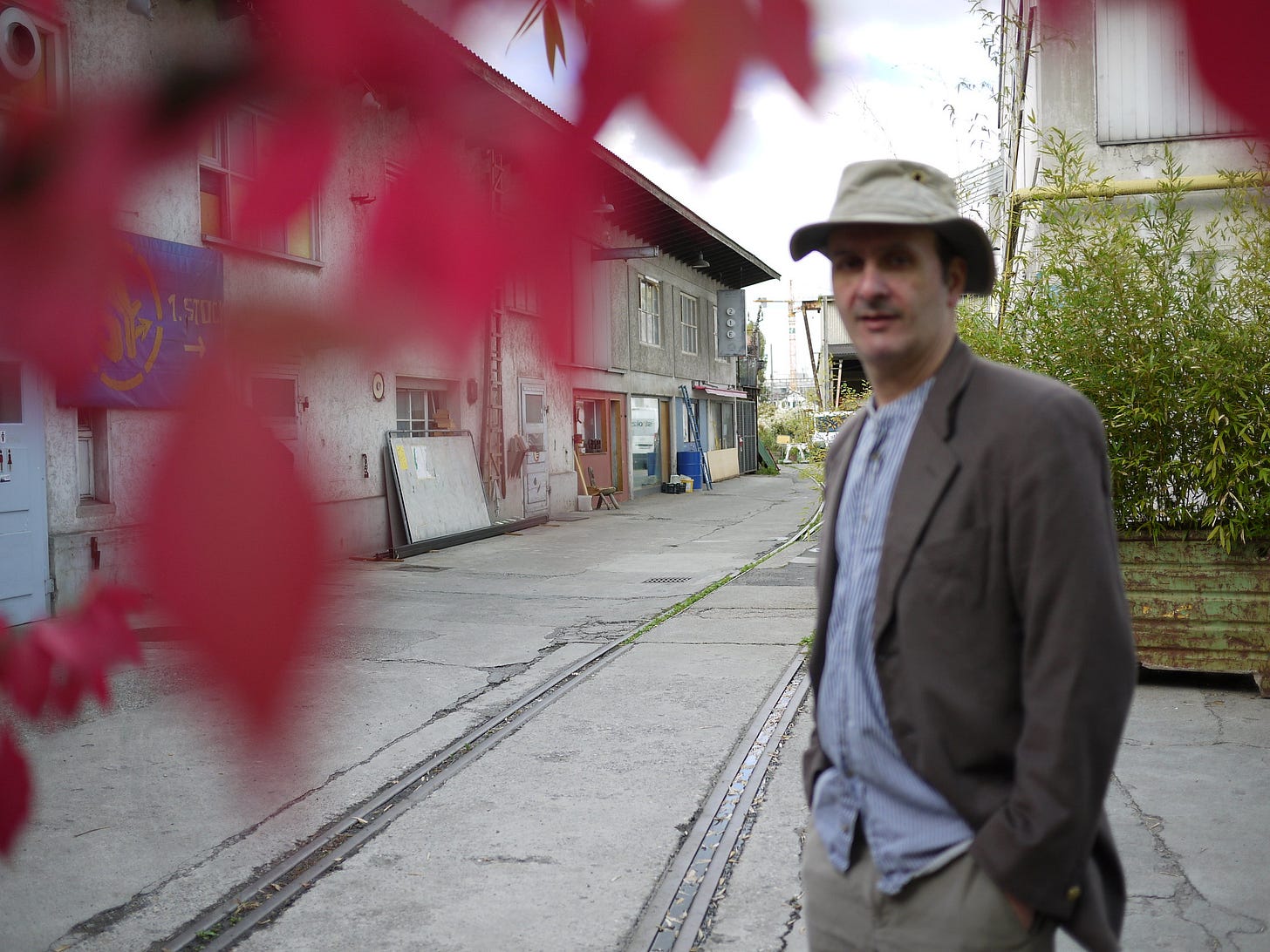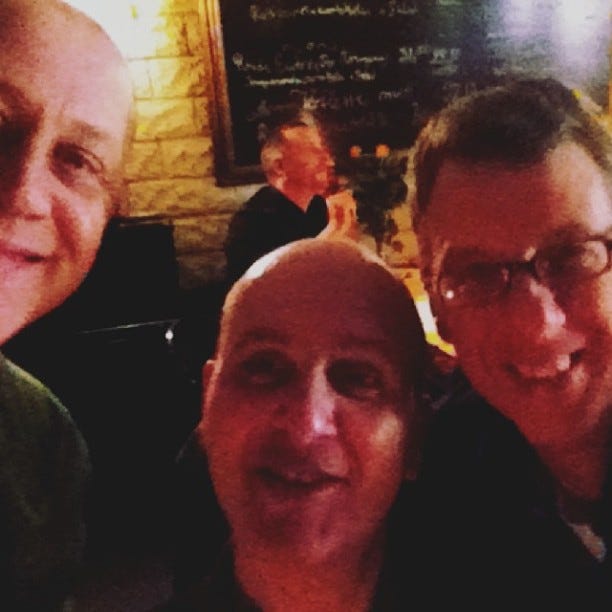In 1994 I was beginning to tuck into the mayhem of the Big New Opportunity aka The Internet, starting to impress and attract Great Big Clients, many from the music business where I had spent ten years writing, recording and performing with some success. One of the projects I was invited to take part in was a fundraiser for a European charity, Menschen für Menschen (People for People) which channeled support to Ethiopia.
The one decent track which emerged from the It’s 5 to 12 project, and which unexpectedly took off in 1996 after years of persistence from Swiss film producer Ditti Brook, was Survival Game. It was written in December 1994 by myself and Mike Turtle on the request of composer / producer Guy Sigsworth, with whom I had enjoyed an occasional co-write having met him through Seal. Guy called up just before Christmas, asking me to please fill in for him - he had just been offered a job he couldn’t refuse (Bjørk) and having made a promise to assist the charity didn’t want to let them down. He was sending me someone of great talent, perhaps we could work together, his name is Mike Turtle, said Guy.
Imaginative, Royal Academy-schooled, idiosyncratic, funny, multi-talented Mike was raised less than half a mile from where I was born, and hitting it off from the start, we became firm friends and dutifully wrote a couple of viable tunes over a weekend in my Islington flat.
We took the home studio recordings to Mr. Blauenstein’s studio in Basel, Switzerland. This simple opportunity changed my life, opening me up to the best city I have ever had the pleasure to live in. Our catchy song spawned various versions, and as the song didn’t do so much at first, Guy was persuaded to donate some of his genius and add his name to the credits, in order to swing it with promoters.
We returned to record an ambient version in Bern, Switzerland, in a cold studio in the middle of an industrial estate. I chiefly remember how we struggled to record something worthy, far from home comforts and indeed anything like my much appreciated London civilisation. I coped a hell of a lot better with the situation than Guy Sigsworth, a Cambridge-educated English intellectual with little appreciation or understanding of the dance-friendly, soulful music Mike Turtle and I had written and which he was volunteering to produce for free.
Guy became as deeply depressed during this time as I’ve ever seen anyone anywhere, clearly wishing he’d never agreed to take part in the charity, working on ideas which didn’t really work late into the night, becoming isolated, obsessed and unproductive.
I recall insisting on spending time recording my one vocal phrase from the song, the only human noise which absolutely needed to be in there, taking the long-suffering engineer down to the Swiss-clean concrete carpark basement with a location recorder and a pair of stereo mikes. I sang the refrain fifteen times to sing it in tune, at a controlled volume, and with the necessary emotion to pull it off.
The project, as always with Guy, moved at a snail’s pace and I had to catch my flight home. Guy became obsessed with the sound design elements of the track, which began to dominate the song; I hung out as long as I could, and kept pushing the production back towards the spirit of the music. In the end, I left my keyboards with Guy to bring back, which he did so carelessly that they arrived minus all the carefully programmed sounds I had spent years creating. He seemed entirely unconcerned when I questioned him, his face a pale, guiltless blank.
Nonetheless, despite the fragmentary, disconnected and unsatisfying nature of this part of the work, the end result of the Ambient Version aka the Chill Out Mix managed to contain some of the melancholy which I originally expressed and which Guy, for his own solitary reasons, was so obviously feeling. The riff, a piano melody, is Mike Turtle’s, but the spidery piano phrase which leaps so remarkably out at 3:33 is Guy’s, as are the lower register, jazz chord inversions. He couldn’t cope with the gentle, Italo-house beat I wrote, so he simply removed it, and I learned to love his thundery, dark, brooding interpretation.
I made a lot of music with Guy and despite his agonised foibles, I enjoyed writing with him, loved his attention to detail and adventurous musicality, although ultimately I found him impossible to work with. However, he has a very particular and original gift, and while Survival Game did finally succeed, going platinum in Chile and reaching the top of several Euro charts, the song is not a fitting epitaph to the three years I spent working with him. Still, the fundraiser worked, thanks to all of us, and especially Ditti Brook.
L-R : Dean, Mike and Ditti
My favourite co-write, and the song I still rate as one of my best is The Environmental Sound of Reproduction, a jaunty tune about over-population. Given a great groove from Guy, I added lyrics, a melody, a concept, a rap, a guitar, backing vocals from Sophy Griffiths, and a baby.
Enjoy.






